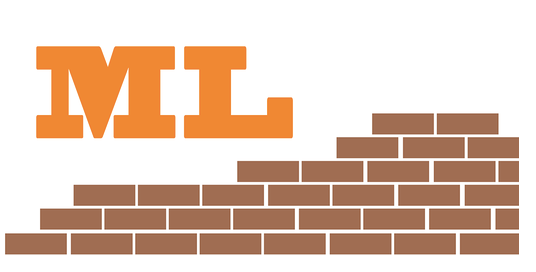Simons Research Fellowship 2017

Amin Karbasi received Simons Research Fellowship 2017 for the “Foundations of Machine Learning” program: link
The goal of this program is to grow the reach and impact of CS theory within machine learning.
One central component of the program will be formalizing basic questions in developing areas of practice, and gaining fundamental insights into these. Target areas of particular interest are interactive learning and representation learning. Interactive learning consists of scenarios in which the communication between human and learner is richer than a one-way transmission of labeled examples; this happens, for instance, in teaching, or explanation-based learning, and in crowdsourcing. Representation learning studies intermediate- or higher-level representations of data that facilitate learning. Questions of interest include the learnability of deep architectures, and how much of it can be accomplished unsupervised; representations that allow generative abilities; and reasoning based on learned intermediate-level features.
A second component of the program is advancing the algorithmic frontier of machine learning. Target areas include Bayesian statistics, in which many of the core algorithmic problems bear similarity to problems that have been studied intensively in the theoretical computer science community; and large-scale optimization, in which a host of interesting challenges arise at the interface of theory and practical deployment.
A final component of the program is understanding heuristics: what works in practice, and why. The most popular algorithms for a variety of basic statistical tasks—clustering, embedding, and so on—behave in a manner that is not fully understood. Some, like principal component analysis, have strong properties, but are used in ways that cannot directly be justified by appealing to these properties. Others, like k-means, have obvious failure modes in a worst-case setting, and yet are quite successful on many types of data. The program will bring together theoreticians and practitioners who are interested in teasing apart these issues and in expanding the useful formal characterizations of such procedures.
Organizers:
Sanjoy Dasgupta (UC San Diego; chair), Sanjeev Arora (Princeton University), Nina Balcan (Carnegie Mellon University), Peter Bartlett (UC Berkeley), Sham Kakade (University of Washington), Santosh Vempala (Georgia Institute of Technology) Long-Term Participants (including Organizers): Jacob Abernethy (University of Michigan), Anima Anandkumar (UC Irvine), Sanjeev Arora (Princeton University), Nina Balcan (Carnegie Mellon University), Peter Bartlett (UC Berkeley), Misha Belkin (Ohio State University), Shai Ben-David (University of Waterloo), Jeff Bilmes (University of Washington), Moses Charikar (Stanford University), Sanjoy Dasgupta (UC San Diego; chair), Maryam Fazel (University of Washington), Vitaly Feldman (IBM Research), Rong Ge (Duke University), Amir Globerson (Tel Aviv University), Navin Goyal (Microsoft Research India), Daniel Hsu (Columbia University), Stefanie Jegelka (Massachusetts Institute of Technology), Michael Jordan (UC Berkeley), Sham Kakade (University of Washington), Ravi Kannan (Microsoft Research India), Adam Klivans (University of Texas, Austin), Wouter Koolen (CWI Amsterdam), Andreas Krause (ETH Zürich), Mike Luby (Qualcomm Inc), Yishay Mansour (Tel Aviv University), Marina Meila (University of Washington), Robert Nowak (University of Wisconsin-Madison), Christos Papadimitriou (UC Berkeley), Luis Rademacher (UC Davis), Benjamin Recht (UC Berkeley), Philippe Rigollet (Massachusetts Institute of Technology), Dan Roy (University of Toronto), Sivan Sabato (Ben-Gurion University), Ohad Shamir (Weizmann Institute), John Shawe-Taylor (University College London), Suvrit Sra (Laboratory for Information and Decision Systems, MIT), Nathan Srebro (Toyota Technological Institute at Chicago), Csaba Szepesvari (University of Alberta), Ambuj Tewari (University of Michigan), Gregory Valiant (Stanford University), Santosh Vempala (Georgia Institute of Technology), Yusu Wang (Ohio State University), Manfred Warmuth (UC Santa Cruz), David Woodruff (IBM Almaden)
Research Fellows:
Hamed Hassani (ETH Zürich; Qualcomm Research Fellow), Amin Karbasi (Yale University), Tengyu Ma (Princeton University), Shay Moran (UC San Diego), Mahdi Soltanolkotabi (University of Southern California), Karthik Sridharan (Cornell University), Xiaorui Sun (Columbia University; Google Research Fellow), Matus Telgarsky (University of Illinois, Urbana-Champaign), Ruth Urner (Max Planck Institute for Intelligent Systems, Tuebingen; Google Research Fellow) Visiting Graduate Students and Postdocs: Kamyar Azizzadenesheli (UC Irvine), Frank Ban (UC Berkeley), Marco Carmosino (UC San Diego), Gintare Karolina Dziugaite (University of Cambridge), Alexander Edmonds (University of Toronto), Reza Eghbali (University of Washington), Justin Eldridge (Ohio State University), Dylan Foster (Cornell University), Fotis Iliopoulos (UC Berkeley), Shrinu Kushagra (University of Waterloo), Holden Lee (Princeton University), Yingyu Liang (Princeton University), Cheng Mao (Massachusetts Institute of Technology), Maithra Raghu (Cornell University and Google Inc.), Anup B. Rao (Georgia Institute of Technology), Andrej Risteski (Princeton University), Manuel Sabin (UC Berkeley), Tselil Schramm (UC Berkeley), Kevin Shi (Columbia University), Christopher Tosh (UC San Diego), Xinan Wang (UC San Diego), Jun Yang (University of Toronto)